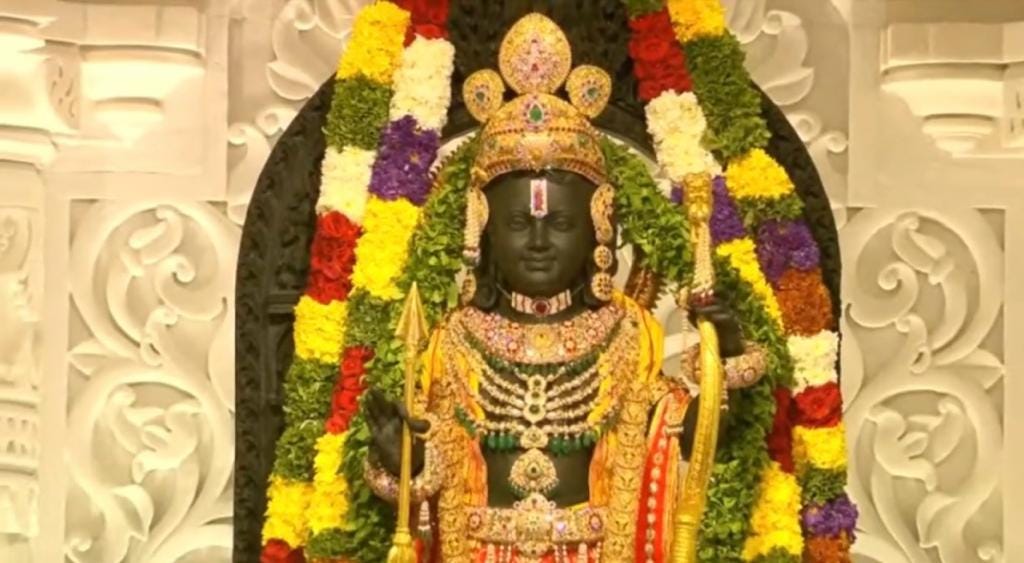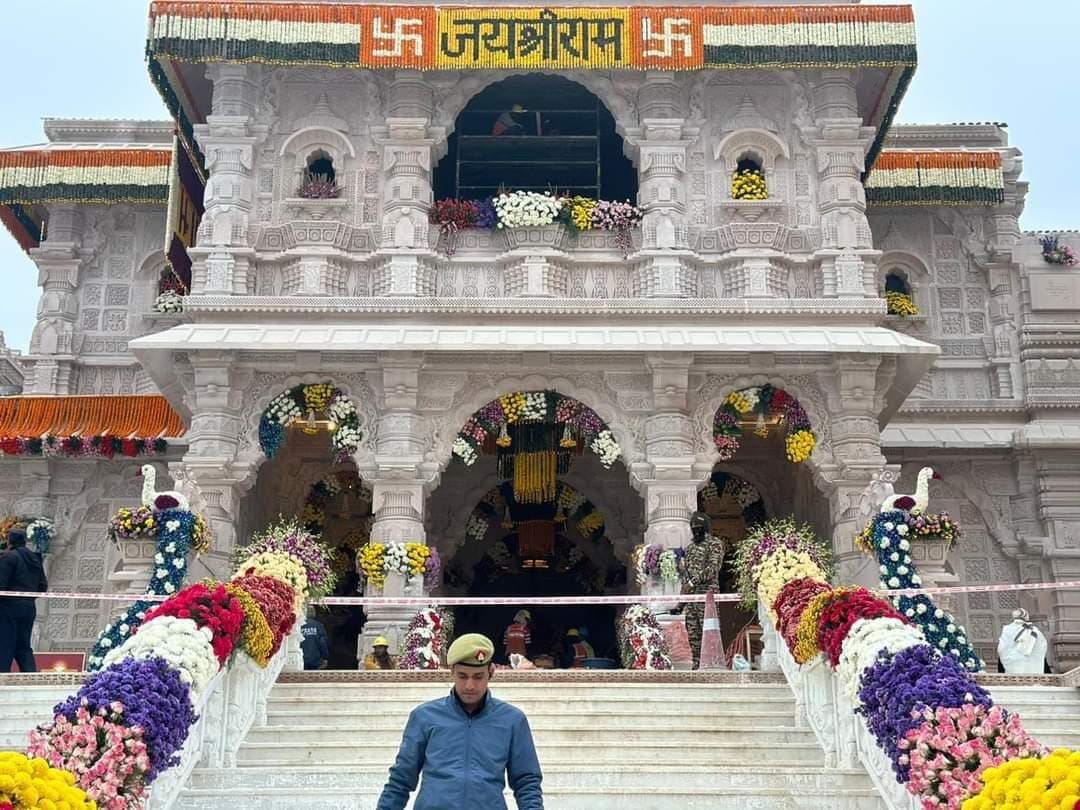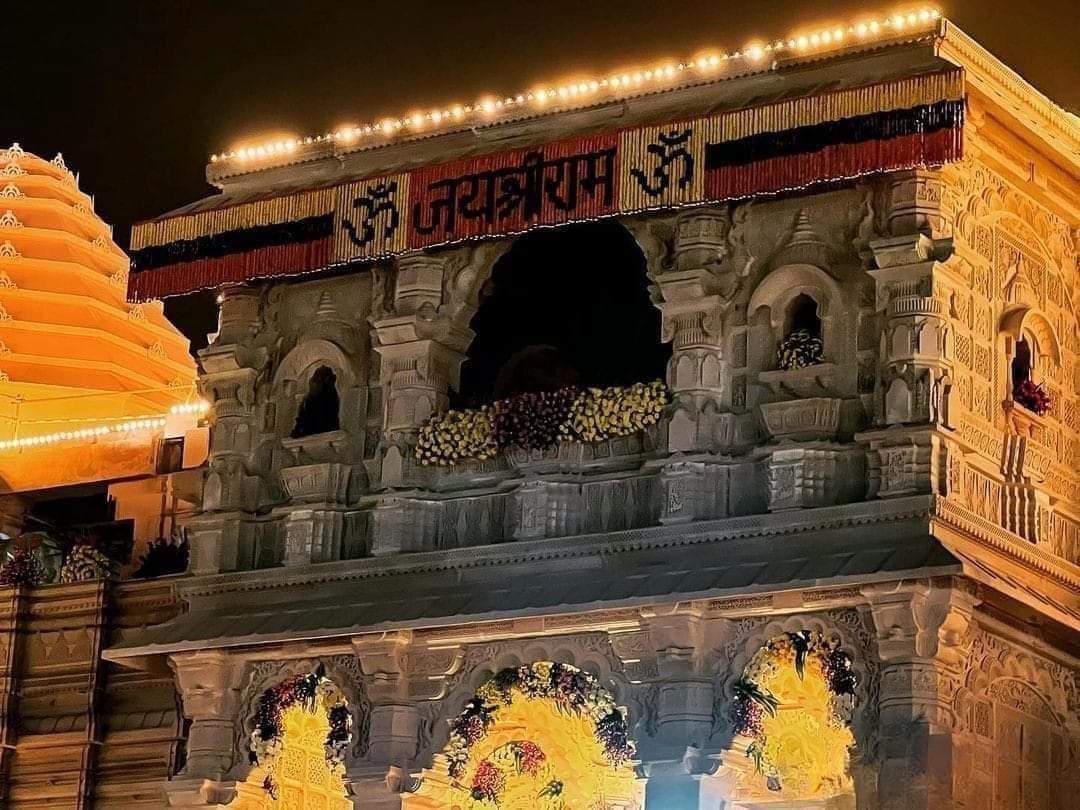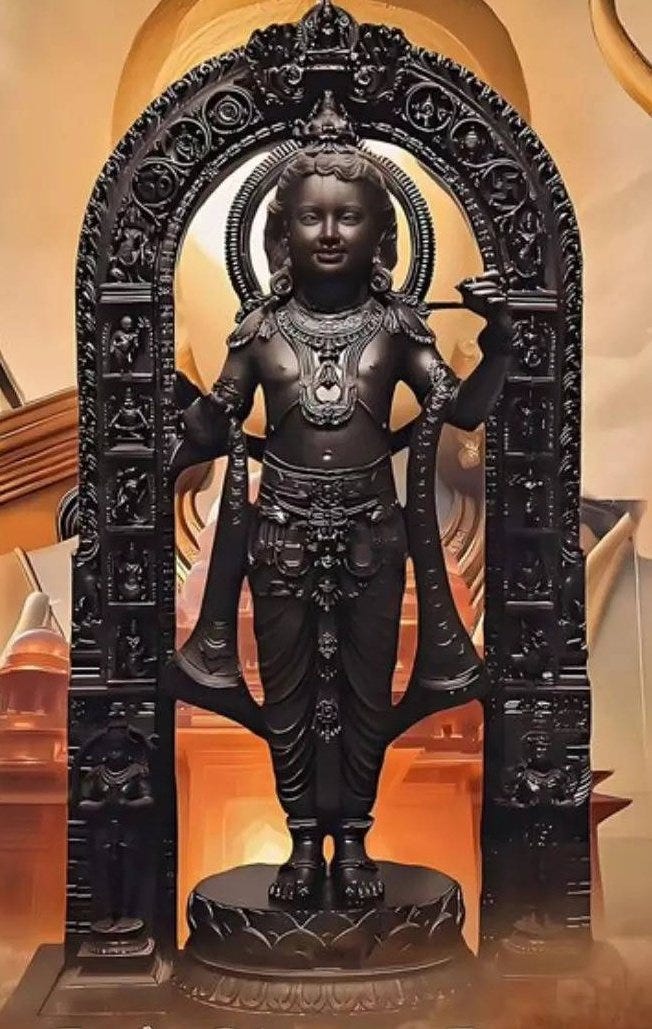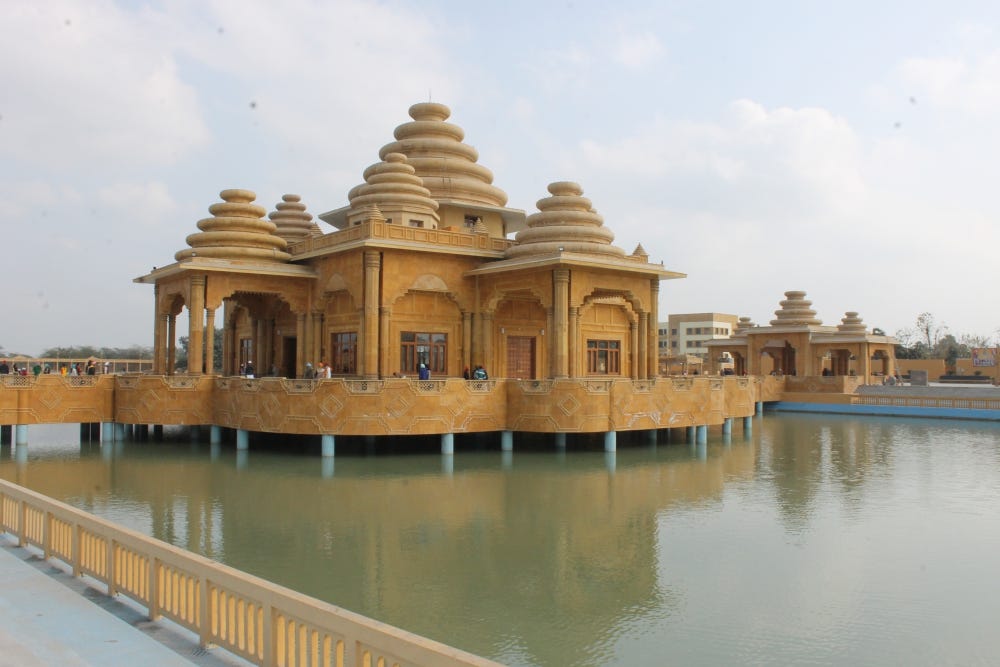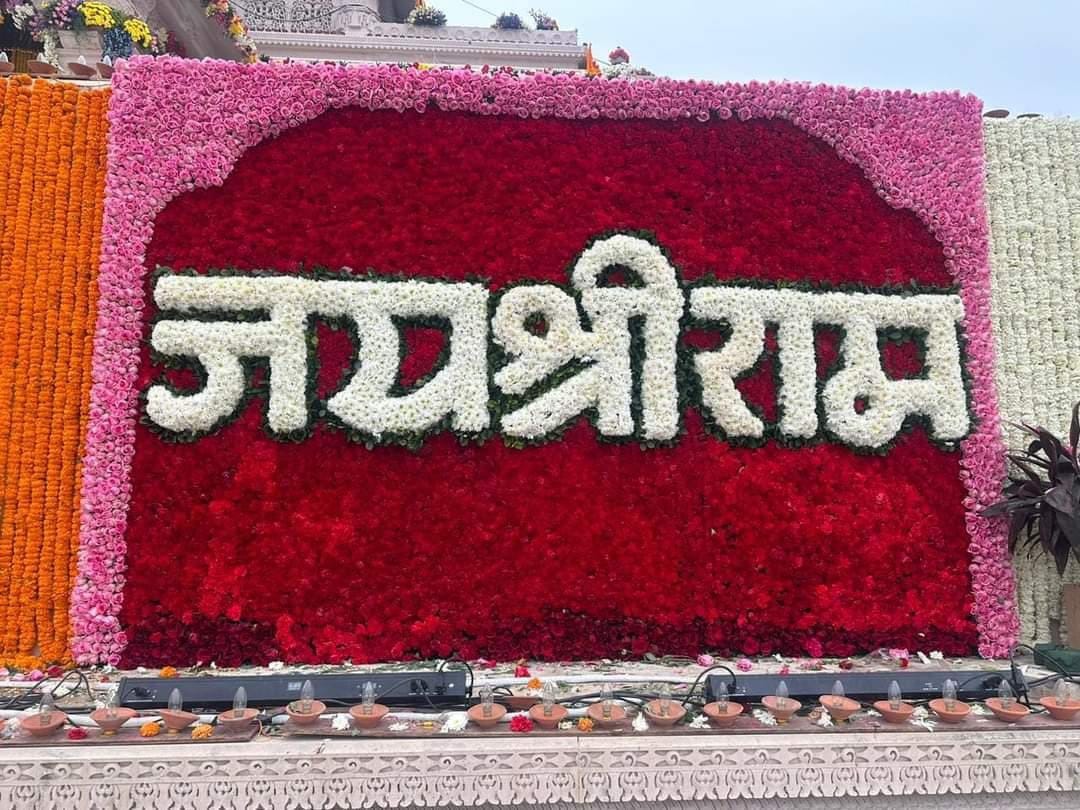A Realignment of our Civilisational Trajectory: Ram Mandir Consecration
10 steps to make this shift sustainable and lasting.
Introduction: Marking a New Epoch in Our Civilizational Journey
The consecration of Ayodhya's grand Ram Mandir today at 12:20 PM IST marks a significant and profound event, transcending a mere ceremonial milestone. It heralds an important phase in the evolutionary journey of our civilisation. Bridging religious, linguistic, and cultural divides, this momentous occasion instills a deep sense of cultural pride and nationalistic spirit in the nation. It is crucial to perceive this not merely as a fleeting episode in India's story, but as a pivotal catalyst for introspection and realignment, steering our civilisational path towards enhanced unity and cultural vibrancy. However, to prevent a reversion to old patterns due to socio-economic inertia, proactive and progressive measures are necessary to ensure this shift in our collective trajectory is enduring and impactful. We outline ten such steps, each significant in its own right, to guide this lasting transformation.
1. Scripture Accessibility: Bridging Linguistic Gaps
"Demystifying Scriptures for Inclusivity": In the light of this historic event, it becomes imperative to make our holy scriptures, including the Vedas, Upanishads, Puranas, Smritis, and Vedanta, accessible in simple translations across major Indian languages, alongside English and Hindi. This step will not only bridge linguistic barriers but also foster a deeper understanding and appreciation of our diverse heritage. The online availability of Sri Guru Granth Sahib's SGPC-authorized translations is a significant step in this direction, setting a precedent for other scriptures.
2. Educational Integration of Spiritual Texts
"Incorporating the Bhagavad Gita in Learning": The Bhagavad Gita, encapsulating profound wisdom in its 736 verses, should be made readily available and integrated into the educational system. Teaching this sacred text in schools will not only illuminate the unity between Lord Krishna and Lord Rama, both avatars of Lord Vishnu, highlighting the continuity and depth of our spiritual legacy, but also serve as a moral compass for us mortals in kaliyug.
3. Indian Diaspora: Upholding Heritage Abroad
"Global Indians: Carrying Heritage Forward": The role of the Indian diaspora in propagating our rich cultural heritage cannot be overstated. Irrespective of their nationality, the colour of the passport they hold, they are the torchbearers of our civilisational values. This global community, especially the youth, should take immense pride in their Indian roots, playing a crucial role in the global narrative of India's rich cultural and spiritual identity.
4. Promoting Yoga: A Holistic Approach to Education
"Yoga: Nurturing Body and Mind in Academia": The introduction of yoga in educational institutions, on an optional basis, is a step towards nurturing the holistic well-being of students. This initiative, supported by various civic bodies, would enhance physical, mental, and spiritual health, reinforcing our cultural identity and promoting a sense of inner peace and community well-being.
5. Reviving Sanskrit: Bridging the North-South Divide
"Sanskrit: A Unifying Thread in Our Linguistic Tapestry": The revival and elective introduction of Sanskrit in educational institutions play a vital role in bridging the linguistic divide between North and South India. The deep-rooted connections of Sanskrit with Tamil and various other Indian languages illuminate our intertwined linguistic heritage, nurturing a sense of unity and a collective cultural identity. Additionally, this initiative will enable devotees and scholars alike to engage directly with Maharishi Valmiki’s Ramayana in its original Sanskrit form, alongside Goswami Tulsidas’s Ramcharitmanas, written in Avadhi. This approach not only preserves our ancient texts but also enhances our understanding and appreciation of them.
6. Social Outreach by Places of Worship
"Spiritual Centres as Beacons of Social Welfare": Places of worship, irrespective of their size or prominence, should initiate social outreach programs to support and uplift their surrounding communities. This approach not only reinforces their role in societal upliftment but also strengthens the bond between different faiths and communities, fostering a spirit of togetherness and mutual support.
7. Inclusiveness in Sikh Scriptures
"Embracing Unity in Diversity through Sikh Teachings": The Sri Guru Granth Sahib, central to Sikhism and revered as a living Guru, gracefully includes references to various Hindu deities. While these references are predominantly metaphorical, symbolizing the omniscient, omnipotent God, they inherently represent the inclusiveness and unity that permeates different faiths. Such metaphorical inclusions in the scripture underline a profound message of unity across religious divides. By bringing these aspects to the fore, we can foster mutual respect and understanding, effectively bridging gaps between diverse religious communities.
8. Redefining Secularism in the Indian Context:
"Secularism: Equality and Respect for All Religions": The Indian Constitution's vision of a secular republic implies equal respect and non-discrimination for all religions. Moving beyond narrow interpretations of secularism and embracing a more inclusive understanding respects all faiths equally, reinforcing our commitment to a harmonious and diverse society.
9. Universal Brotherhood: Beyond Religious Divides
"Envisioning Humanity as One": Embracing the concept of universal brotherhood, ਮਾਨਸ ਕੀ ਜਾਤ ਸਬੈ ਏਕੈ ਪਹਚਾਨਬੋ (“Recognize all of mankind as one”) as espoused by Guru Gobind Singh Ji, is fundamental to our civilisational ethos. Viewing the entire human race as one, transcending differences in caste, colour, creed, and gender, aligns with our core values of unity and inclusivity.
10. Harmonious Religious Debates
"Fostering Respectful Inter-Faith Dialogues": Debates between devotees of different deities— such as Lord Shiva and Lord Vishnu— should be conducted in a spirit of harmony and mutual respect. Understanding and appreciating differing viewpoints are essential for maintaining communal harmony and fostering a culture of respectful dialogue.
Charting a New Course for Civilisational Harmony and Growth
As we commemorate the consecration of the Ram Mandir, an event of extraordinary significance that comes once in a millennium, it is crucial to transcend narrow-minded rivalries and embrace this opportunity to nurture civilisational harmony and advancement. This pivotal moment invites us to actively partake in elevating our civilisation, avoiding the snares of jealousy, envy, and bitterness, and eschewing the denigration of any religious group. In this spirit, I had evenly allocated modest contributions to the Ram Mandir Trust, the proposed Mosque at Ayodhya, and Sri Darbar Sahib, Amritsar. However, I contributed a slightly larger amount through Khalsa Aid to the Kisan Morcha, underscoring my commitment to a society that values harmony and inclusivity. These contributions are not merely donations but emblematic of my firm belief in the solidarity of all faiths and the paramount importance of mutual respect and support.
This article is not merely a testament to my secular credentials or a display of my religious belief, but a call to foster an environment where all faiths are revered and celebrated. This significant milestone is an inflexion point for us to ponder and redirect our course, with the aim of positioning India as not just a scientific and military frontrunner but also as a beacon of human philosophy and thought leadership. Let us unite in this endeavor, steering our esteemed civilisation towards a future that is enlightened, harmonious, and prosperous.
जय श्री राम।


